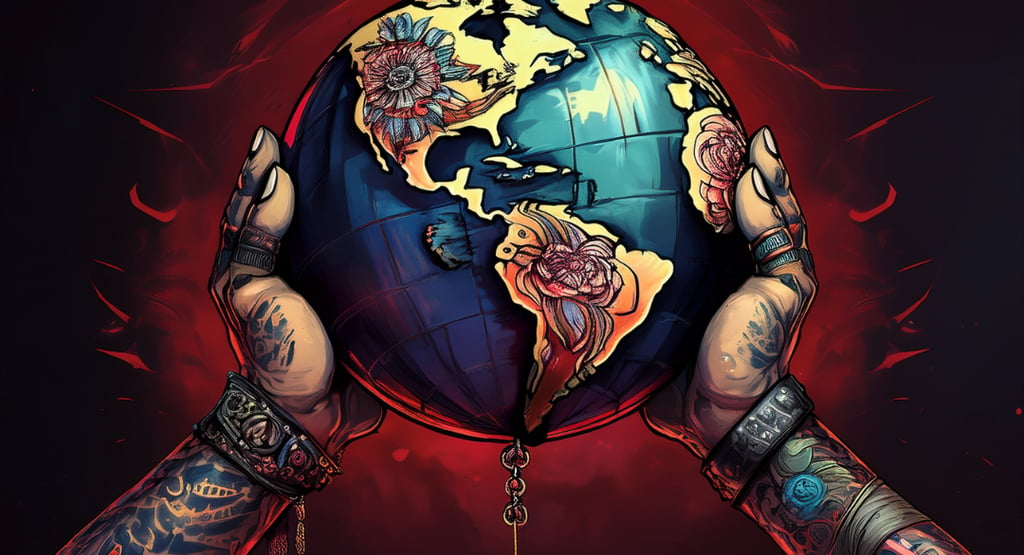Global Echoes: When Tattoos and Power Dictate Justice
4/22/20252 min read


Global Echoes: When Tattoos and Power Dictate Justice
Introduction
Kilmar Abrego Garcia’s deportation to El Salvador, fueled by unproven MS-13 tattoo allegations, isn’t an isolated case. Around the world, governments and leaders use superficial markers like tattoos to justify punishment without due process. From El Salvador to Japan, these stories reveal a troubling trend: justice sidelined by prejudice and power.
El Salvador’s Tattoo Trials
In El Salvador, President Nayib Bukele’s 2022 state of emergency led to over 80,000 arrests, many based on tattoos assumed to signal gang ties. Like Garcia, thousands are detained in CECOT without trials, facing torture and inhumane conditions. Bukele’s refusal to release Garcia, despite a U.S. Supreme Court order, shows how unchecked power can override justice.
Japan’s Tattoo Stigma
In Japan, tattoos are tied to the yakuza, leading to bans in public spaces like gyms and hot springs. Inked individuals face job discrimination and social exclusion, even without criminal records. While not as severe as imprisonment, this cultural bias mirrors the assumption that tattoos equal guilt, limiting personal freedom without evidence.
Russia’s Prison Ink
In Russia, prison tattoos often mark criminal history, but authorities and society may misinterpret them. Ex-convicts with tattoos face lifelong stigma, struggling to reintegrate. The state’s reliance on such markers, without verifying context, echoes the snap judgments in Garcia’s case.
The U.S. Context
Garcia’s deportation, amplified by Trump’s tattoo photo post, reflects a similar pattern. Alleged MS-13 tattoos were used to justify his removal, despite no convictions. Globally, this tactic thrives when leaders wield social media or policy to bypass courts, as seen in Bukele’s mass arrests or Trump’s public narrative.
Breaking the Cycle
These cases demand accountability. Governments must prioritize evidence over appearances, ensuring trials and transparent processes. Public education on cultural biases, alongside legal protections for the accused, can curb misuse of power. Garcia’s ongoing detention is a call to action: justice must triumph over prejudice.
Thought Questions:
How can global societies challenge cultural biases linking tattoos to criminality?
Should international laws regulate leaders’ use of social media to influence legal outcomes?
What can the U.S. learn from global cases to prevent future injustices like Garcia’s?
hello@boncopia.com
+13286036419
© 2025. All rights reserved.